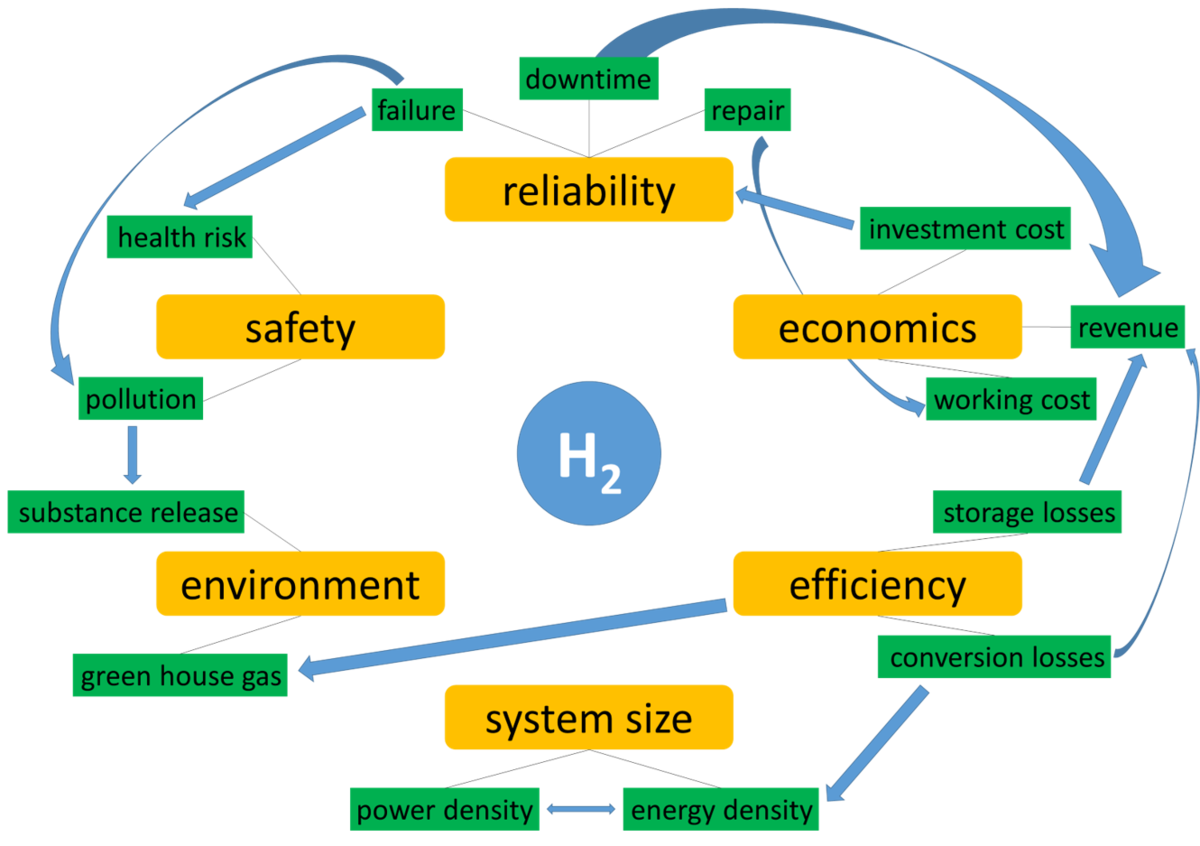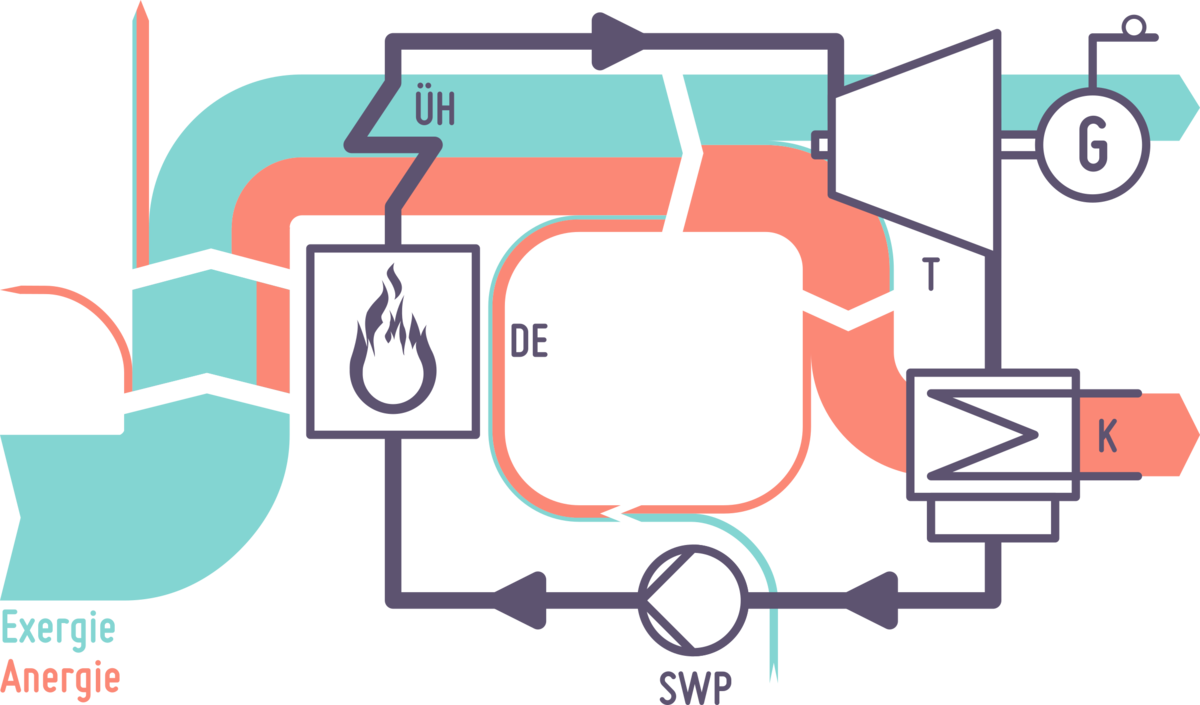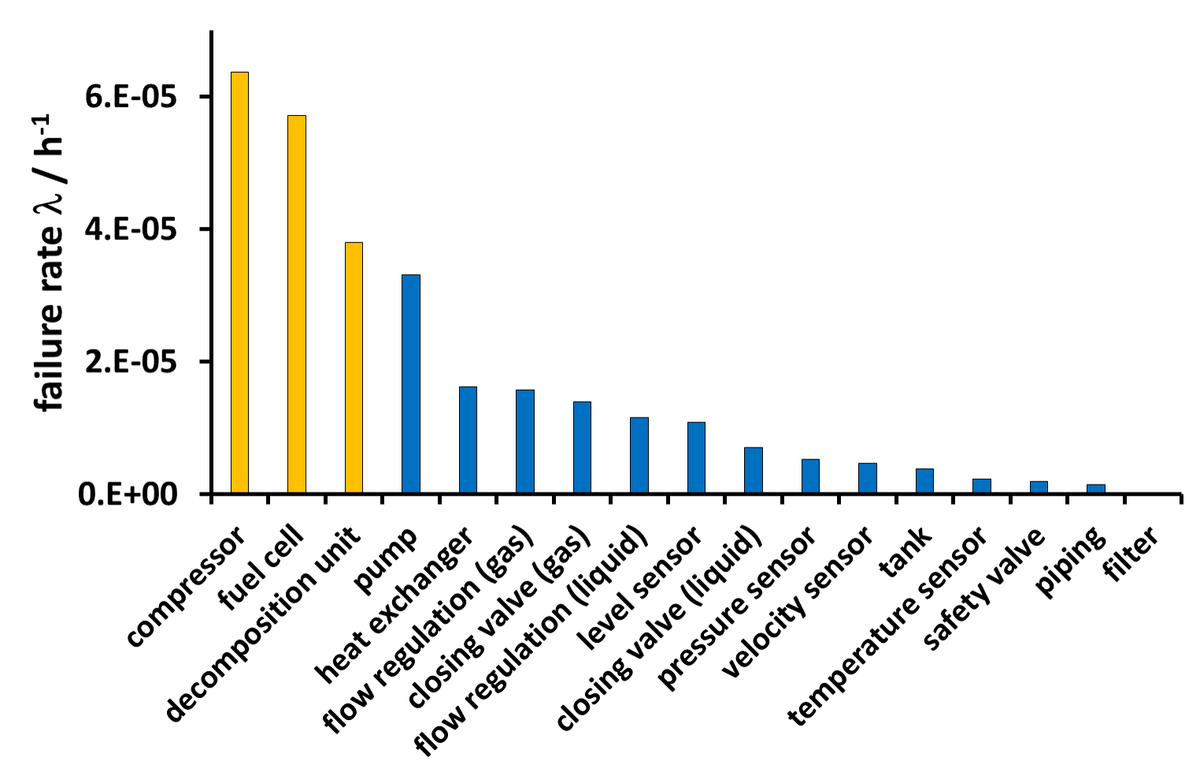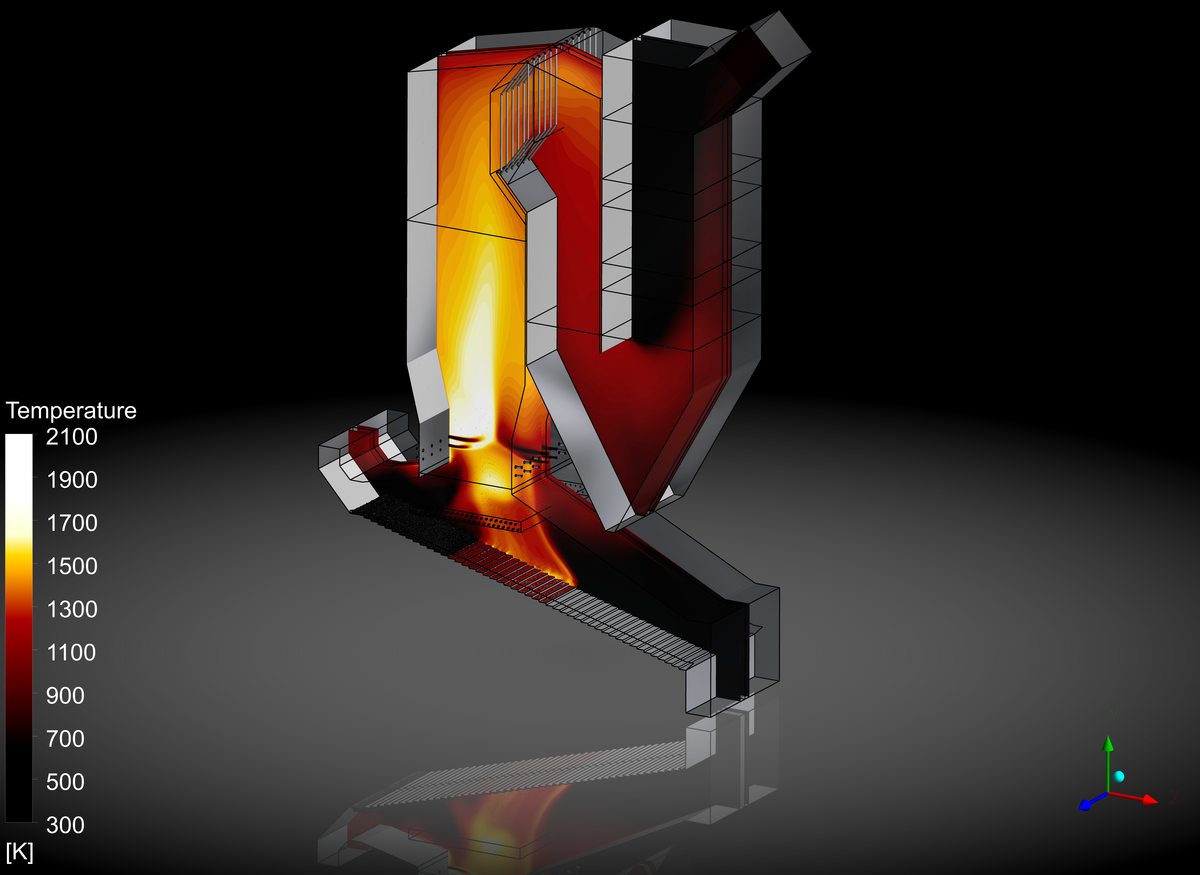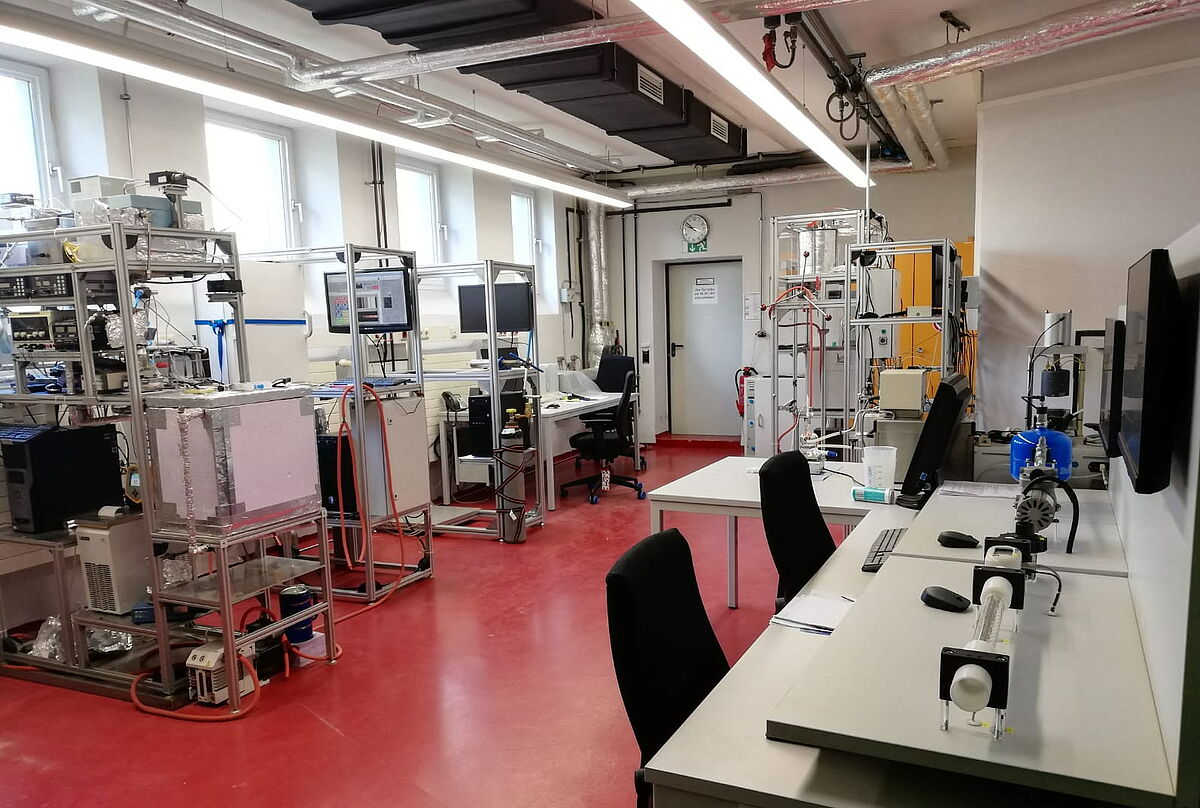Research fields
Energy storage
Energy storage is going to play a much more important role in future energy systems than it does nowadays. On the other hand, there is still a huge demand for research and development on storage technologies. The Institute of Technical Thermodynamics is active in two fields of energy storage:
- Hydrogen storage
- Thermal Energy storage
With regards to hydrogen storage, the works focus on the development of approaches to store hydrogen in an efficient, dense and safe form on carrier materials like LOHCs. Topics to be addressed in this context are the reduction of the energy demand for hydrogen release, increasing energy density, enhancing the dynamics and providing hydrogen with high purity. Furthermore, processes for the utilization of renewable hydrogen to produce fuels for marine transport and to extend the raw material base for industries are studied (P2X).
Thermal energy storage systems are evaluated regarding two main aspects: 1. The integration of heat storage units into energy systems and 2.) the development and improvement of technologies for storing thermal energy. Technologies under investigation are sorption based storage units as well as other thermochemical and latent storage systems.
Energy system analysis
Thermodynamics provide a manifold toolbox for the analysis and optimization of energy systems and other processes. Energy conversion technologies and production processes are evaluated energetically and exergetically. This allows to identify weaknesses and potentials for improvement. A particular challenge in this context is the fact that optimization has to be done within a multi-dimensional parameter space. Multi-criteria methods enable finding pareto-optimal solutions for technical applications. Criteria among others are:
- Energy efficiency
- Economics
- Environmental impact
- Dynamics
- Reliability
Reliability and resilience of new technologies
Experience is usually missing to assess the reliability of new technologies. Furthermore, there are many problems during early stages of technology development and implementation. This often hinders the realization of innovative technologies. One issue is that investors demand information about reliability before investing huge sums. Another problems is that researchers often have to deal with unprecedented issues during technology development. Through suited prediction methods, it is possible to gain important insights and support development and implementation of new technologies.
Research at the institute addresses a number of aspects from this context:
- Estimation of mean times to failure
- Identification of critical system components
- Measures for improving reliability
- Optimization of resilience (i.e. ability to recover from disturbance)
- Measures for reducing effects of failures
Thermochemical conversion of solid biofuels and special fuels
Nowadays, solid biofuels are a central component of heat supply. This includes among other domestic use, industrial heating and combined heat and power plants. It is assumed that the importance of biomass will continue to grow as a provider of sustainable energy. Although the combustion of solid biomass, e.g. wood, is an established technology, typical fluctuations in fuel composition and quality often lead to various problems. The following are the most common ones:
- Deposition formation
- Enhanced corrosion
- Component damage
- Pollutant emissions
The institute addresses these and similar issues by highly resolved numerical simulations (CFD). Our institute is experienced in the application of common simulation methods as well as in the development of new models based on the existing core competences in the field of heat and mass transfer, combustion technology and the thermochemical conversion of biofuels.
In addition to solid biofuel combustion, our institute is also engaged in numerical investigation of special fuel incinerators, e.g. sewage sludge fluidized beds and optimization of exhaust gas after treatment systems.
Thermophysical properties of substances and mixtures
The properties of pure substances and mixtures are a crucial basis for thermodynamics. Next to the modeling of these data, measurements are of utmost importance. The institute is active in the experimental determination of these properties and aims at achieving data with excellent accuracy. The most important data measured in our lab are:
- Vapor pressure
- Gas solubility
- Viscosity
- Density
- Speed of sound
- Heat capacity

